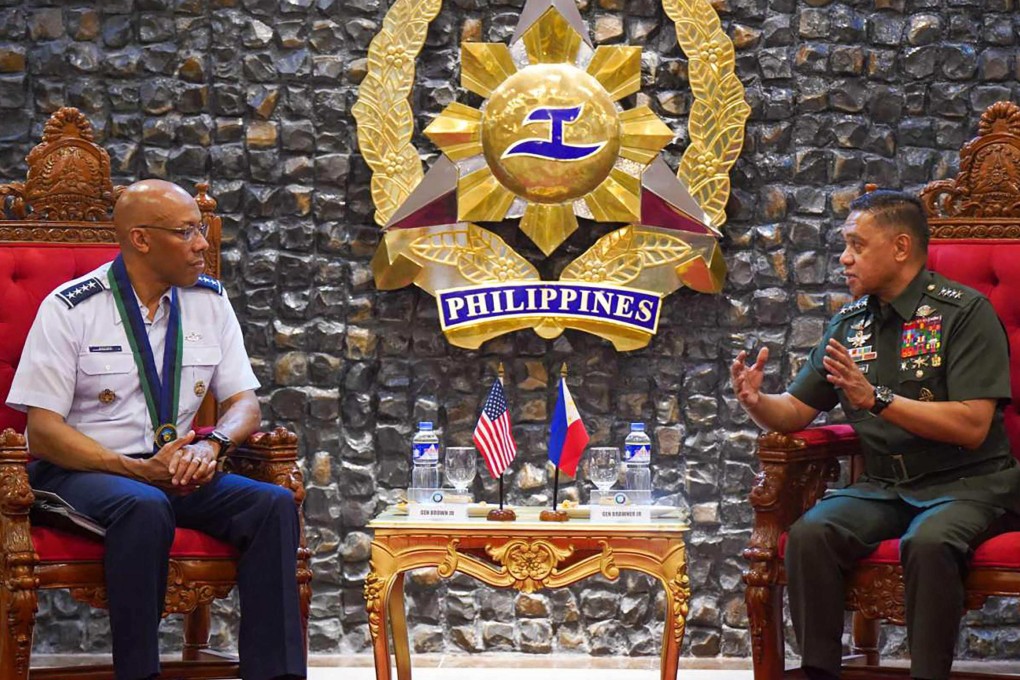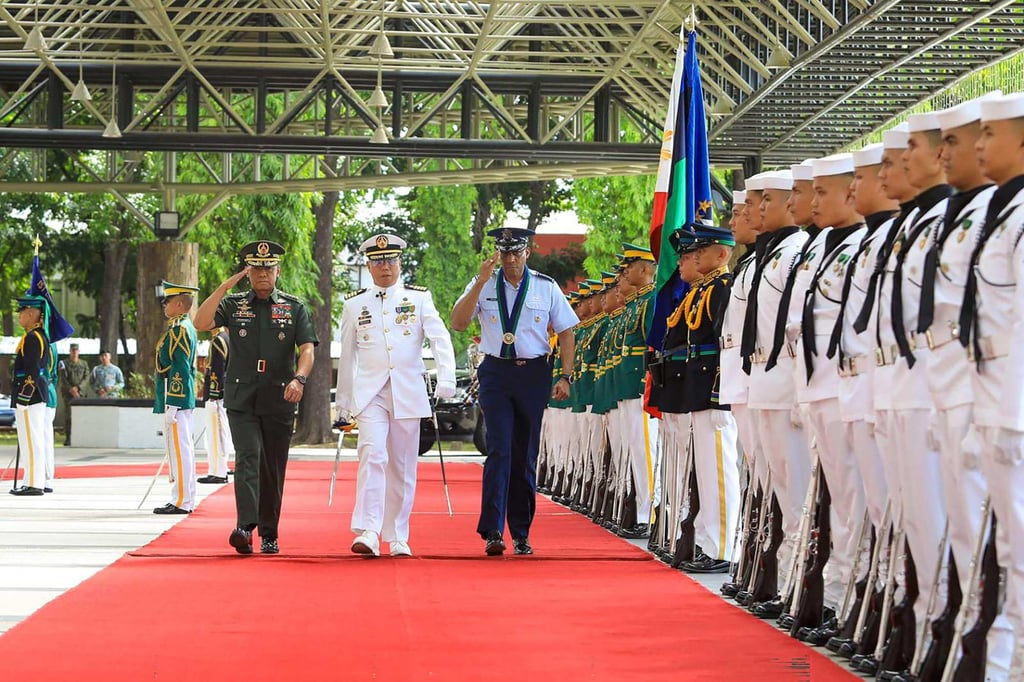South China Sea: US-Philippines intelligence deal ‘long overdue’, marks deepening ties
- Observers say the move is expected to raise Beijing’s ire, but is a logical next step for the Philippines amid the maritime row

On Tuesday, General Charles Brown Jnr, US military chair of the Joint Chiefs of Staff, met Manila defence officials at Camp Aguinaldo, showing America’s “solid commitment” to its long-time ally following last month’s violent confrontation between Filipino and Chinese vessels in the Second Thomas Shoal.
Brown Jnr is set to inspect selected US military bases under the Enhanced Defence Cooperation Agreement (EDCA), a pact between the Philippines and the US that allows for large-scale joint military exercises, troops rotation and pre-positioned defence material, equipment and supplies.
The inspection is necessary before both countries will approve the intel-sharing framework, known as the General Security of Military Information Agreement (GSMIA), allowing the exchange of classified information in a timely manner.

Once approved, both countries will have protocols for safeguarding top-secret military information and early detection of potential threats in the West Philippine Sea, Manila’s name for parts of the South China Sea it considers to be in its exclusive economic zone.
